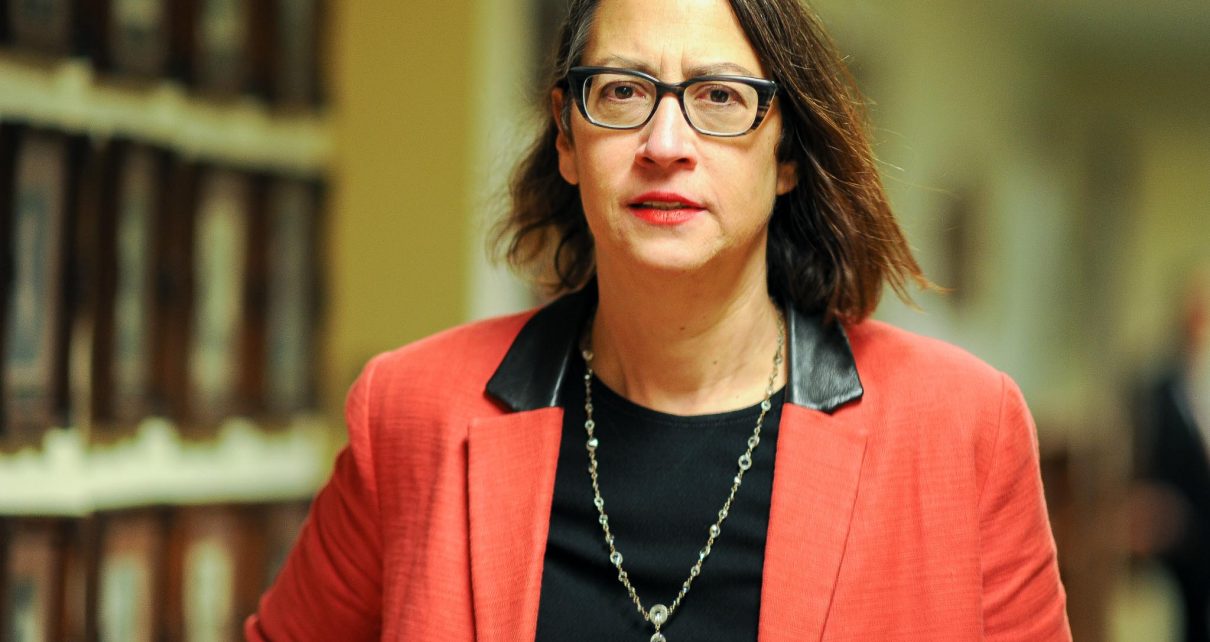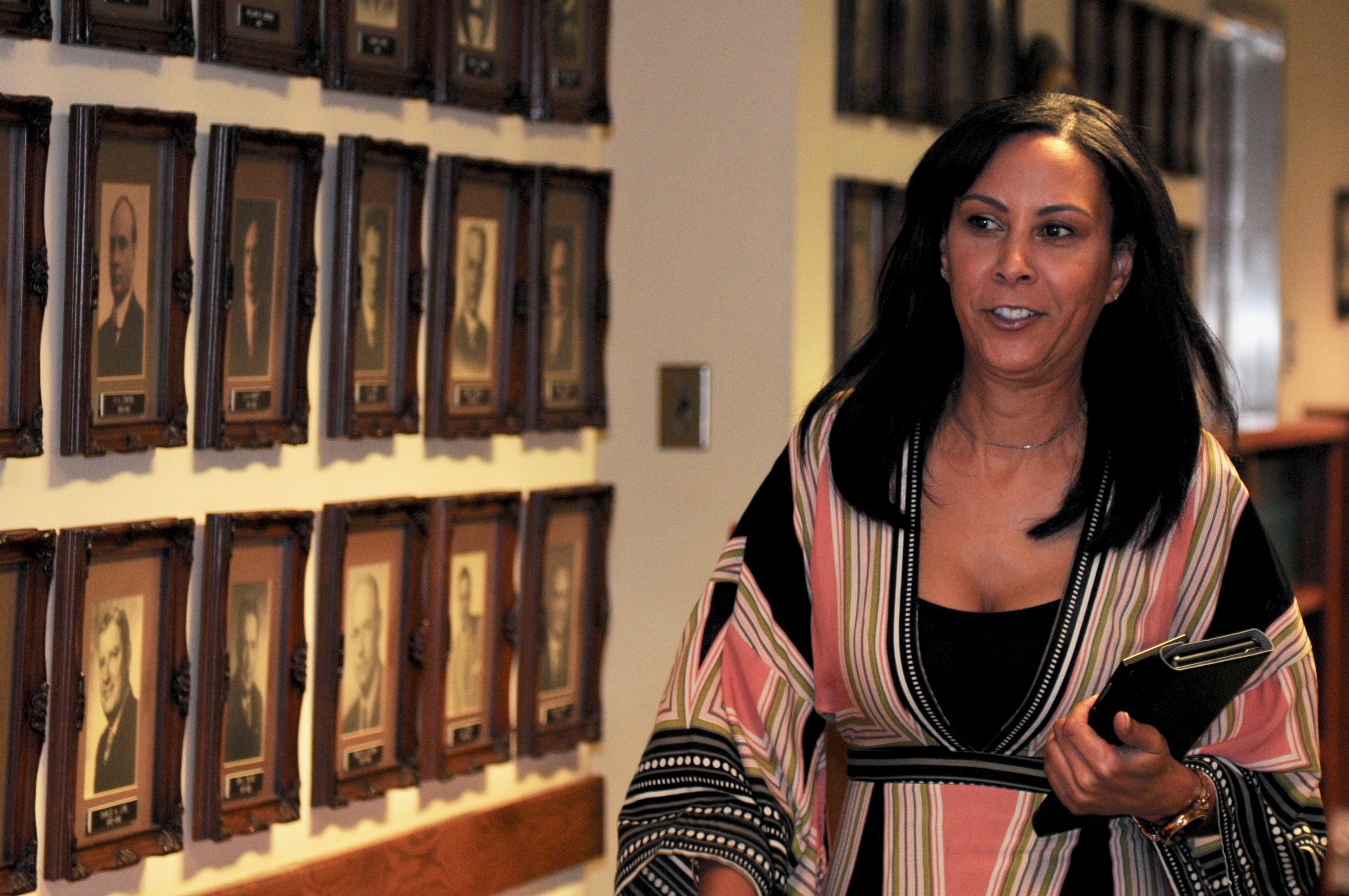
Assemblywoman Laura Friedman. (Photo: Kevin Sanders for California Globe)
Bill To Create School Zone Camera Pilot Program In Six Cities Goes Before Assembly Appropriations Committee
Safety, privacy concerns clash in the latest iteration of the speeding camera pilot program bill
By Evan Symon, May 18, 2023 12:18 pm
A bill to create a pilot program to install cameras in school zones and high accident areas in six major cities across California was heard in the Assembly Appropriations Committee Thursday following passage last month in two other Committees.
Assembly Bill 645, authored by Assemblywoman Laura Friedman (D-Glendale), would establish a Speed Safety System Pilot Program in the cities of Los Angeles, San Jose, Oakland, Glendale, Long Beach, and San Francisco. Under the program, speed cameras would be set up in school zones, places with speeding problems, and high accident areas until the end of 2031. The bill would require a participating city or city and county to adopt a Speed Safety System Use Policy and a Speed Safety System Impact Report before implementing the program, and would require the participating city or city and county to engage in a public information campaign at least 30 days before implementation of the program, including information relating to when the systems would begin detecting violations and where the systems would be utilized.
Participating cities would also need to issue warning notices rather than notices of violations for violations detected within the first 60 calendar days of the program and, to quell privacy concerns, designate all photographic and administrative records made by a system as confidential, and would only authorize public agencies to use and allow access to these records for specified purposes. Facial recognition software would also be banned from being used in the program. In addition, AB 645 would also require a city participating in the pilot program to submit a report to evaluate the speed safety system to determine the system’s impact on street safety and economic impact on the communities where the system is utilized.
To activate cameras and get a ticket, cars would need to go 11 MPH or more above the speed limit, with the owner of the car getting a fine starting at $50. Specifically, fines would be of $50, $100, $200 or $500 for breaking the speed limit by 11 mph, 16 mph, 26 mph, or going over 100 mph. The bill also requires cities to reduce fines for those under the poverty line by 80% or offer community service, and requires cities to reduce fines by 50% for individuals 200% above the poverty level.
The latest iteration of the speed camera pilot program bill
Assemblywoman Friedman wrote the bill due to a rising number of traffic accidents in the state and statistics from cities such as New York City finding that traffic cameras reduced the number of accidents in areas with them anywhere from 17% to 71%. A study by the Federal Highway Administration (FHA) found the figure to be at an average of 54%.
“The goal is simply to slow down the speeds so we save lives, and everything in the bill is designed around that,” Friedman said. “Rather than trying to punish drivers, it’s very intentionally designed to change driver behavior.”
Groups supporting the bill, such as Streets Are For Everyone and Walk San Francisco, have also pointed to the rise in accidents, with speed cameras being touted as the solution.
“Police can’t be everywhere at once, and a lot of people who live and walk these streets are sick of seeing cars speed by, especially if the driver is distracted,” Maria Cardinal, a former crossing guard and advocate speed cameras in the Bay Area, told the Globe on Thursday. “We need safer streets, period. And fining drivers can help institute change. If they speed regularly, those fines can quickly add up.”
However, there is strong opposition to AB 645, both in and out of Sacramento. For years, similar bills, such as 2022’s AB 2336, have been attempted only to fizzle out due to privacy concerns, public opposition, and action by local authorities to help better police areas. Groups such as the ACLU are particularly worried that, despite assurances written into the bill, that digital privacy rights would be violated. Data collection concerns and the neglect of infrastructure causing a rise in accidents have also been put forward by groups against the bill.
“These bills all eventually fail, and even if cameras go up, they’ll soon come down again due to public opposition,” said Hank Vaughan, a lawyer who has brought many cities with traffic cameras to court. “I mean, California already has a ton of failed systems. Red light cameras in LA and Pasadena were all pulled nearly 10 years ago, and some speed camera systems have only lasted five years or so until they were found to be unprofitable or so hated by the people there they stopped.”
“And now we live in an a world where video and pictures uploaded onto a system becomes information for anyone out there to access, or that data to be sold. They’re very clear in the bill that it won’t happen, but it is never a 100% guarantee. It’s likely that this won’t be passed, just like all the others before it. And if it does, it is going to court, because there are a lot of privacy conflicts in it. Safety is important, but there are other ways to achieve it. Once cameras go up, it is very hard to stop the flow of all this data going out there. Similar technology data from license plate readers has already been used by ICE in California to nab people. Imagine what these cameras can do.”
Opposition to AB 645 has been growing in the last several weeks, with the Assembly Privacy and Consumer Protection Committee vote last week seeing the first nay votes, being passed 8-1 with 2 abstentions. It is due to be heard in the Assembly Appropriations Committee later on Thursday.





This is obviously a NO. Come ON, Asm Laura Friedman, haven’t you been paying attention? We can’t afford the initial equipment, never mind the piles of law suits that would be the result. And wouldn’t it make for a refreshing change from the usual if you and your friends could occasionally come up with something that didn’t waste money on more intrusive Big Brother nonsense?
NO on AB 645.
What company is behind installing these cameras and what incentives has Democrat Assemblywoman Laura Friedman been promised to push this big brother legislation?
Exactly TJ